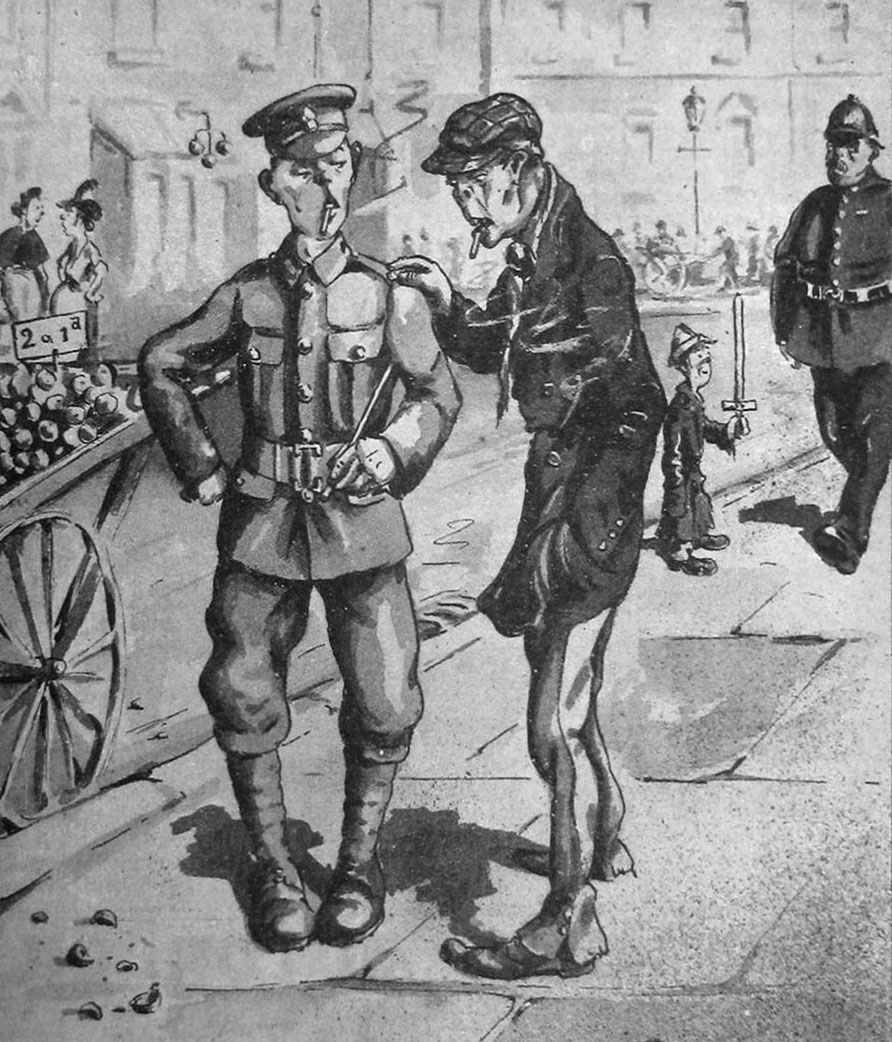Who will fight for the King?
Dublin, 10 October 1916 - The efforts of the Irishmen who have enlisted voluntarily in the British Army have been ‘heroic’ since the start of the war, said the Lord Lieutenant of Ireland in a speech made yesterday in Dublin.
Nonetheless, he continued, the number of men who have enlisted is not enough: ‘The Irish Divisions need 40,000 men before Christmas. How is this shortage to be made good, and how are these numbers to be obtained?’
‘It was estimated last year that there were in Ireland 562,000 males of military age. The usual deductions for medical unfitness and for agriculture and other kindred occupations have to be taken into account, so that you may say there are in Ireland today between 100,000 and 200,000 men of military age who are eligible for service and can be spared.’
The Lord Lieutenant made the speech at a banquet in the Gresham Hotel given by Councillor William Delany, the High Sheriff of Dublin City.
Lord Wimborne referred in passing to the fact that the street around them had been destroyed by fighting in the recent Rising and that its rebuilding was a vital thing. It was, he said, ‘a magnificent thoroughfare’.

‘An Irish Lead’, a recruting play written and produced by Mrs. Standish-Barry. The play was performed at Baths Hall, Cork on 6th September to raise money for Irish prisoners of war.
Conscription
In respect of conscription, the Lord Lieutenant further said that
up until 15 September 1916, some 157,000 Irishmen had enlisted. Of
these, 92,000 were known to be Catholic and 62,000 were known to
be Protestant.
Among these were 54,000 men from Ulster, of whom 40,000 were Protestant. The remainder of the men consisted of 4,000 from Connacht, 16,000 from Munster, 19,000 from Dublin and 12,000 from the remainder of Leinster.
The speech was made as Irish unionists continued to urge the extension of conscription to Ireland.
Wimborne admitted that although he had contemplated conscription, he had never advocated it because there was no consent in Ireland to the introduction of such a measure.
Nationalists have accused the unionists – as well as in the ‘Tory press’ in London – of being hell-bent on forcing conscription on Ireland.
There is, among such nationalists, a general desire to avoid conscription. In a letter to the Daily Mail, Fr. J. T. McGlade, the Parish Priest in Limavady, Co. Derry writes:
‘When we have an Ireland as independent and as free as Australia, we shall not require any inducements to fight for the Empire of which we shall be a unit, and not a subjective province’.
Historian Niamh Puirséil discusses the impact of conscription in Britain in 1916 on the Irish labour movement.
[Editor's note: This is an article from Century Ireland, a fortnightly online newspaper, written from the perspective of a journalist 100 years ago, based on news reports of the time.]





















